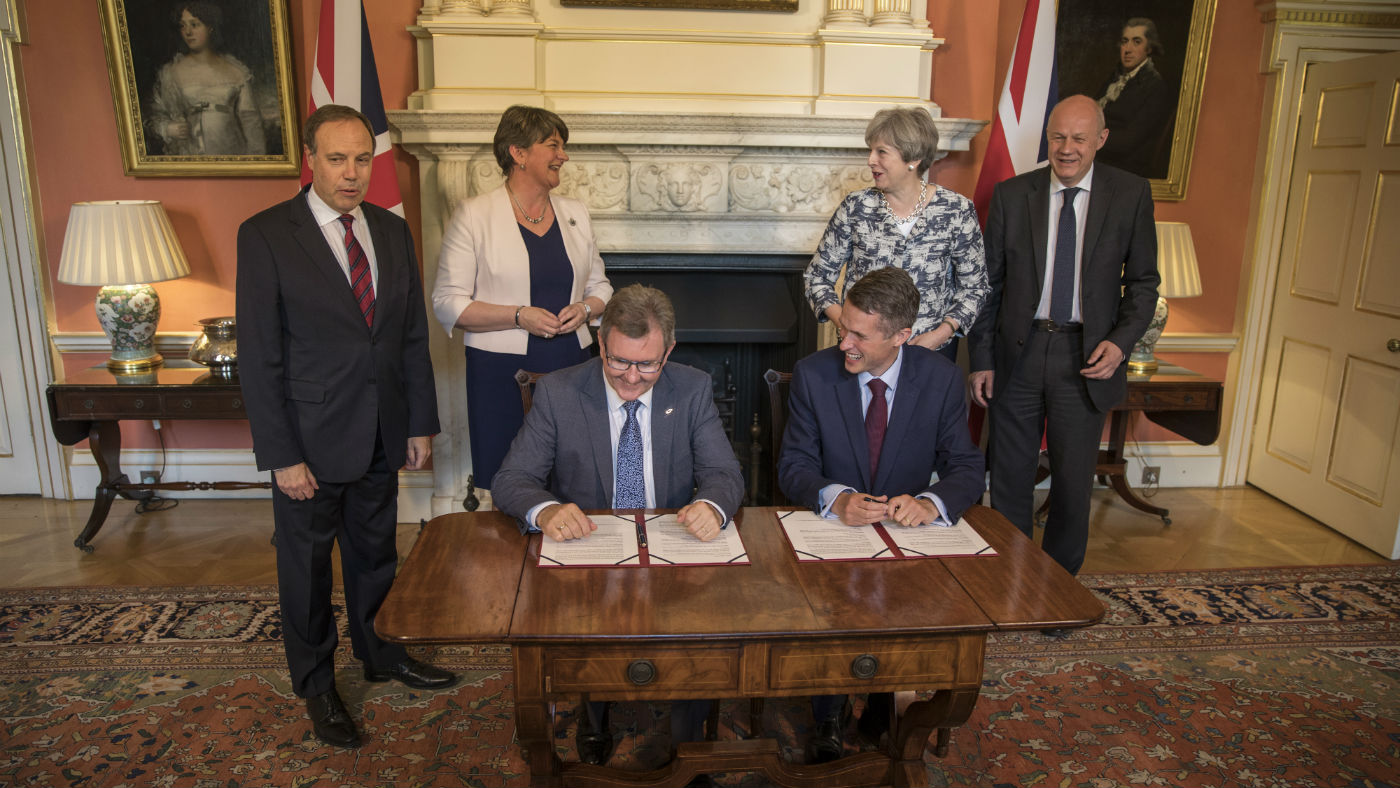Five things you need to know about the pension triple-lock
Some have said the pension up-rating mechanism should be replaced with a double-lock

A free daily email with the biggest news stories of the day – and the best features from TheWeek.com
You are now subscribed
Your newsletter sign-up was successful
The state pension triple-lock looked doomed at one point back in May - but after the Conservative's election campaign chaos and the eventual hung parliament deal with the DUP, the up-rating mechanism has been saved.
It’s back in the headlines but what exactly is the triple-lock? Here’s five things you need to know.
It guarantees an annual increase in the state pension
The Week
Escape your echo chamber. Get the facts behind the news, plus analysis from multiple perspectives.

Sign up for The Week's Free Newsletters
From our morning news briefing to a weekly Good News Newsletter, get the best of The Week delivered directly to your inbox.
From our morning news briefing to a weekly Good News Newsletter, get the best of The Week delivered directly to your inbox.
The triple-lock was introduced in 2010 as a way to guarantee a meaningful rise in the state pension every year: it guarantees that the state pension will increase annually by the higher of inflation, average earnings or a minimum 2.5 per cent.
As a result the state pension has risen by 56 per cent over the past seven years. Back in 1995 a greater proportion of pensioners were in absolute poverty than working age people, but that has now been reversed.
It is expensive
There have been increasing calls among finance and pension experts to scrap the triple-lock as it is proving to be expensive and pensions are increasing faster than wages or inflation. It is adding to the growing cost of providing a state pension to an ever-increasing cohort of older people.
A free daily email with the biggest news stories of the day – and the best features from TheWeek.com
We live in an aging society with more and more people living into their eighties and nineties. When the basic state pension was originally introduced back in 1948 it started being paid at 65, when life expectancy was 64. Now average life expectancy is 81.
The overall bill for the state pension was 5.2 per cent of GDP last year and is forecast to rise to 6.7 per cent by 2066.
The UK has no cash set aside for pensions
Unlike some other countries the UK Government has no money set aside to pay the state pension. It is funded from the income tax and National Insurance contributions paid by people who are still working.
With an aging population meaning more and more people are retired, there is a fear that we could end up with a larger retired population than working population, leaving younger people facing increasing tax bills to pay the state pension. Already the number of over-65s is larger than the number of under-16s.
A double lock would save money
The money-saving alternative to the triple-lock is to cut it to a double-lock guaranteeing that the state pension would rise each year but only by the higher of inflation or average earnings. It would scrap the promise of at least a 2.5 per cent rise each year.
Several former pensions ministers including Baroness Altmann and Steve Webb have called for the triple lock to be changed.
“Absolutely we must protect pension incomes, but the 2.5 per cent bit doesn’t make sense,” Altmann told The Observer earlier this year. “If, for example, we went into a period of deflation where everything, both earnings and prices, was falling then putting pensions up 2.5 per cent is a bit out of all proportion."
It is believed this change would slow the ongoing rise in the total cost of the state pension, meaning it would only make up 5.9 per cent of GDP by 2066.
Of course the triple lock is only in place up to 2022 - and that assumes this government survives. It's also worth noting inflation is currently 2.9 per cent some reckon it could remain above 2.5 per cent for some years, during which time the triple-lock wouldn't be doing anything more than the double-lock would anyway.
The Government can’t scrap the triple-lock
The Conservative Party announced in its election manifesto plans to scrap the triple-lock and replace it with a double-lock. The plan was to ditch the minimum 2.5 per cent annual increase after 2020.
But, the tight election result mean the Tories needed to strike a deal with the Democratic Union Party (DUP) in order to be able to govern. As the DUP was vocal in its support of the triple-lock in the run up to the election the Tories have had to abandon their plans to strap it during this government in order to secure a ‘confidence and supply deal’ with the DUP.
So, the triple lock is saved, for now.